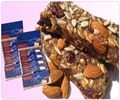- Takeaways, food manufacturers use grease-proof papers and boxes to pack fast food like burger, pizza, fries and desserts.
- Grease-proof papers, cardboards, drink containers have PFASs (per- and polyfluoroalkyl substances), a group of fluorinated chemicals.
- Exposure to some PFASs has been associated with cancer, thyroid disease, immune suppression, low birth weight, and decreased fertility.
Junk Food Packing also Poses Danger
Along with the many reasons to avoid fast food or junk food here’s a new one. The packaging materials used for the burger and fries may contain fluorinated chemicals that are harmful. The shocking news is that, these chemicals can leach into the food it is packed. Pizzas, burgers, fries and tacos have a greese-proof packing which are resistant to oil and the penetration of grease. Grease-proof papers are produced by paper-making techniques but involve the use of special pulps and a degree of mechanical beating or refining.Paper wrappers, paperboard, and drink containers were tested for the presence of a class of chemicals called PFASs (per- and polyfluoroalkyl substances) also known as PFCs.
PFASs are not naturally found in the environment. They are man-made chemicals that contain carbon and fluorine atoms. The chain length, or the number of carbon atoms, in the molecule differentiates one molecule from another. PFASs are usually used in carpeting, cookware, outdoor apparel as well as food packaging for their non-stick, water-proof properties.
Using particle-induced gamma-ray emission (PIGE) spectroscopy, the samples were analyzed for fluorine, a marker of PFASs.
The team detected fluorine in almost half of paper wrappers used as burger wrappers and pastry bags and 20 percent of paperboard used as boxes for fries and pizza.
PFASs - How Harmful is it?
Firstly, exposure to some PFASs has been associated with cancer, thyroid disease, immune suppression, low birth weight, and decreased fertility. When the food comes in contact with the wrapper, it leaches some of the toxins it contains."These chemicals have been linked to numerous health problems, so it's concerning that people are potentially exposed to them in food," says Laurel Schaider, an environmental chemist at Silent Spring Institute and the study's lead author.
Secondly, various studies have pointed out that PFASs from consumer products accumulate in landfill sites and can migrate into groundwater, potentially impacting drinking water supplies. Though PFASs are allowed in compostable food packaging, it can affect levels in soil and crop plants.
The researchers conducted a more detailed study on a subset of 20 samples to characterize the different types of PFASs present. Samples that were high in fluorine, also contained PFASs.
C8 or PFOA (perfluorooctanoic acid) were found in six of the samples. Due to health hazards, several of the major manufacturers in the U.S. agreed to stop using C8 compounds in food packaging after a review by the U.S. Food and Drug Administration in 2011. Since then, the packaging materials with PFOA were phased out.
But, other countries still produce them, and many companies have been replacing them with shorter-chain PFAS compounds, some of which were detected in the study. PFASs are sometimes intentionally added as they have a non-sticky surface to the wrapper and keeps the food intact.
"All PFASs, including the newer replacements, are highly resistant to degradation and will remain in the environment for a long time," says co-author Graham Peaslee, a physicist at the University of Notre Dame who developed the PIGE method to screen food wrappers.
"Because of this, these highly fluorinated chemicals are not sustainable and should not be used in compostable products or any product that might end up in a landfill."
Arlene Blum, founder of the Green Science Policy Institute and co-author of the study explains that none of the replacement compounds for PFAs have been shown to be safe for human consumption.
It is therefore advisable to reduce the use of the entire class of fluorinated compounds and opt for non-fluorinated alternatives which are neither harmful to health nor the environment.
Reference:
- Food-packaging Materials: Their Composition and Uses; a Report, National Research Council (U.S.). Food Protection Committee.
- Basic Information about Per- and Polyfluoroalkyl Substances (PFASs) - (https://www.epa.gov/pfas/basic-information-about-and-polyfluoroalkyl-substances-pfass)
Source-Medindia














